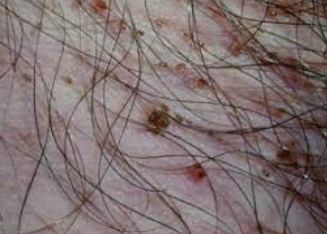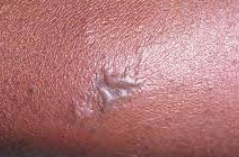What Triggers Uncommon Discharge From the Penis Or Vaginal area?

Discharges from the penis or vaginal area can have numerous causes, and they are not constantly an indication of sexually transmitted infections. Two common kinds of abnormal discharges are bacterial vaginosis and yeast infections. Bacterial vaginosis is brought on by an overgrowth of germs in the vaginal area. This type of infection usually takes place in sexually active females, and doctors are still trying to figure out precisely what causes it. Signs of this condition include burning and itching.
Pubic lice

Pubic lice are tiny bugs that live on the body and feed on blood. They can trigger extreme itching and are typically spread through sexual relations. You can treat the problem by utilizing over-the-counter medicine or prescription lotion. It is necessary to treat both you and your partner for lice to prevent re-infestation. Nevertheless, if you think that you have been contaminated, it is best to see a doctor.
A physician can look for lice utilizing a comb or magnifying lens. They may likewise ask you about your sexual partners and suggest testing for STIs. The primary treatment for pubic lice is a medicated hair shampoo or cream. Depending on the kind of lice, you might need a 2nd treatment.
The prevalence of pubic lice in college students is low and is well within the norm amongst young adults. However, public awareness about pubic lice is limited due to widespread misinformation and relentless misconceptions.
Liver disease B immune globulin
Hepatitis B immune globuln (HBIG) is a vaccine that helps prevent the impacts of HBV infection. The symptoms of HBV infection may include an unusual discharge from the penis or vaginal area, or clusters of blisters. Some individuals have no symptoms at all, while others may experience fever, muscle discomfort, and exhaustion for a number of days. Ultimately, some people will develop long-term hepatitis B, and others might even pass away of the illness. Individuals can contract the virus through sexual acts, utilizing contaminated needles, and by exposing their bodies to dirty water. The illness can likewise be passed from mother to child during pregnancy or childbirth.
Effective Treatment of Uncommon Mucoid Discharge from Penis or Vaginal area
Adults typically recuperate from hepatitis B without treatment, but the infection may end up being chronic and can trigger serious liver damage, liver scarring, and even death. Liver disease B can be transferred through sex and from blood that is infected with the infection. Around 70% of cases are symptomless and are not discovered by medical professionals.
BV
A typical BV discharge has a fishy odor. This smell assists a physician detect the condition. A physician will also keep in mind that the discharge has a greater pH than the vagina’s regular pH. On a scale of 0-14, distilled water has a pH of 7. The normal pH for the vagina is 3.8 to 4.5. A pH above 4.5 can cause anaerobic germs to grow. In addition, lactobacilli start to die off.
If you suspect BV, a doctor might conduct a physical examination and take a vaginal fluid sample. Evaluating the vaginal fluid might help rule out other conditions with similar signs. However, this test is not 100 percent dependable. Even if the test returns negative, your healthcare provider will still recommend treatment. Some cases of BV clear up on their own, while others may require prescription antibiotics. These medications are available in the form of gels and pills.
Although not a sexually transmitted infection, a confirmed case of BV should be treated with antibiotics before going through any procedure. This will assist prevent any issues, such as post-procedure infection. Studies have actually revealed that antibiotics might reduce the risk of postoperative infection by 10 to 75 percent. Antibiotics are not required in cases of asymptomatic BV, but they must be taken in case of a vaginal yeast infection.
Yeast infection
Yeast infections can be brought on by an imbalance of natural germs, which exists in the vaginal area. This can be treated with antifungal tablets. However, prolonged infections can cause more severe health problems. For this reason, it is essential to look for medical guidance if you have regular outbreaks of this condition.
Many ladies will have a yeast infection at one point or another. Yeast is naturally discovered in the vaginal area, in small quantities. It is also discovered on the skin and in the gastrointestinal tract. Most of the times, you will not experience signs. Nevertheless, when it becomes too plentiful, it can alter the typical balance of germs in the vagina. When this happens, prescription antibiotics may be needed. Taking these medications may minimize the number of advantageous bacteria in the vagina, making the infection worse.
Yeast infections are not contagious, but they can be painful and uneasy. It can also cause rashes, and a thick white discharge. The discharge may also smell like yeast or bread.
Gonorrhea

Gonorrhea is a common bacterial infection of the penis or vaginal area. The signs of this infection consist of uncommon discharge of yellow or greenish color and a burning sensation. It can also trigger discomfort or bleeding while urinating. It is transferred through skin-to-skin contact and must be treated immediately. In serious cases, it can cause serious health problems.
A medical professional can recommend prescription antibiotics to deal with the infection. These medications might be provided by injection or in the form of a single tablet. The doctor might suggest a follow-up check out one week after the treatment to check on your condition. If the infection has not been entirely eliminated, your doctor will suggest more tests. In the meantime, you need to prevent sex up until your physician says you are clear.
Gonorrhea can be a dangerous infection if it infects other parts of the body. In women, the infection can affect the uterus and trigger a pregnancy-related abscess. In guys, the infection might lead to swelling in the penis and testicles. Both sexes may establish skin rashes and joint pain. In uncommon cases, it can even reach the heart and brain.
Antibiotics
An unusual discharge from the penis or vaginal area can be brought on by a variety of various things, including a urinary tract infection or a sexually transmitted infection. It can be watery, cloudy, or bloody, and may be accompanied by pain or burning during urination. A range of medical tests are available to verify the cause. A urine test can identify bacterial or viral STIs, and fluid samples may reveal active sores or infections.
Treatment of Heartburn
Vaginal yeast infections are brought on by an infection with the fungus Yeast albicans. Yeast albicans reside on our bodies in extremely percentages, including in the vagina, mouth, and digestive tract. When an infection occurs, it alters the typical balance of bacteria, which may lead to an irregular discharge. It can likewise cause vaginal inflammation and itching.
The infection can be treated with an antibiotic. Nevertheless, prescription antibiotics can also cause yeast to grow uncontrollably. This makes it more difficult for bacteria to eliminate it. While antibiotics can assist you fight off germs, they also eliminate healthy germs in your body, which makes your condition even worse.
PCOS
If you’re experiencing uncommon discharge from the vagina or penis, it might suggest PCOS. This hormone disorder affects roughly 10 percent of reproductive-age ladies. The condition also triggers weight gain, irregular periods, and infertility. Common irritants that can trigger this condition consist of cleansers, douches, sex toys, and toilet paper. It can also be brought on by antibiotics, which can disrupt the regular germs balance in the vagina and lead to a yeast infection.
A client with PCOS may experience irregular durations, abnormal bleeding, and acne. Although the condition can be treated, it can also result in irregular ovulation and undesirable hair development. Women with this disorder should consult their doctor to identify what treatment is best. Treatments can consist of contraception, progestin treatment, and other medications. In extreme cases, a physician may advise surgery.
Physical examinations are vital to identify the condition. Throughout a physical exam, a physician will try to find swelling, lesions, or masses in the external genitalia. She or he will likewise check for enlarged lymph nodes. During the test, a speculum can be utilized to find erythema, which is a sign of swelling in the vaginal area. Vaginal discharge will likewise be examined for color, volume, and adherence to the vaginal walls.










